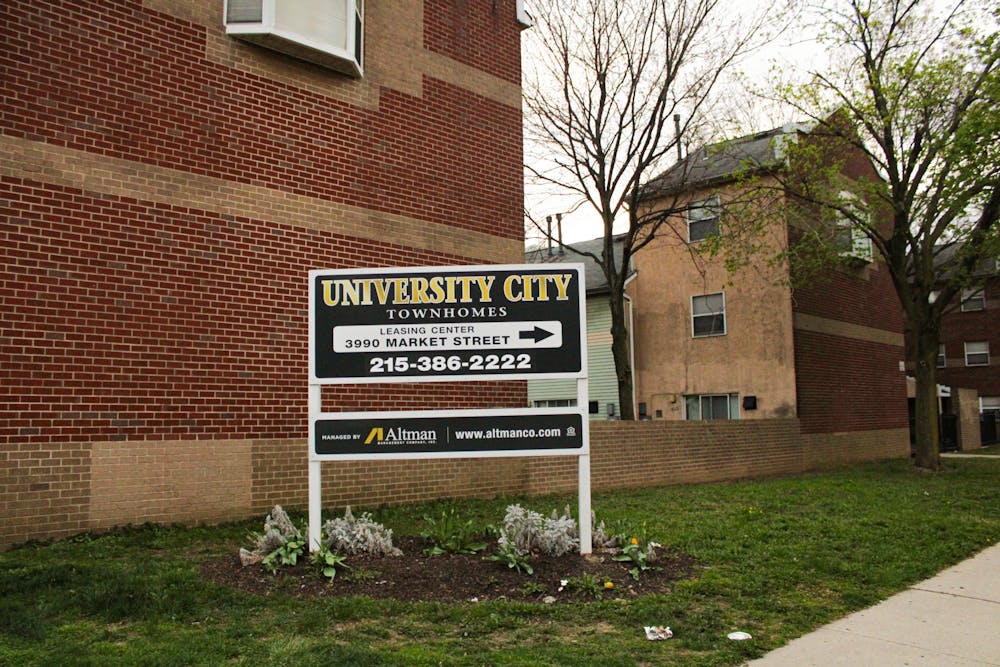Penn and its neighbors are facing a significant gentrification event with the reported plans to sell University City Townhomes, a stable and successful low-income housing complex. Creating a benefit corporation (B corp), a specially chartered for-profit corporation with an additional legal obligation to produce public benefits of identified kinds, could do the job of not only preserving the Townhomes, but also improving them.
Presumably, upon sale of the Townhomes to a developer, the developer would then expel the residents, raze the complex, and replace it with “market rate” housing and commercial establishments. The situation has been reported and has received local and national attention: For example, The DP’s story, various Philadelphia Inquirer stories that are unfortunately behind paywalls, and the Daily Kos story (with interesting comments), which was reprinted from Prism, have offered comprehensive coverage on the issue. There has also been much local agitation and protest, both in the local community and at Penn.
The question stands: What, if anything, should and can be done?
What should be done, I submit, is to preserve and expand low- and middle-income housing in West Philadelphia in a way that sees its flourishing to the benefit of both its residents and its neighbors, including the Penn community. We all gain from diversity and inclusion in the neighborhood. Its various cultural benefits alone are immensely valuable.
But how can this be accomplished? The owners of University City Townhomes have every right, and even obligation, under their existing legal arrangements to maximize their profits without taking into account the broader social interests that are certainly present. This is what standard for-profit corporations (so-called C Corporations) do. They are profoundly amoral, and will always be so unless incentives change.
Pretty obviously, then, it is necessary to change the incumbent legal arrangements if gentrification is to be countered. How can that happen? This can happen by changing the ownership of the Townhomes to a benefit corporation that has a mission to sustain flourishing low- and middle-income housing (including quality construction with weatherization, excellent insulation, and full electrification in recognition of climate change). This promising idea should be explored urgently both for University City Townhomes and as a counter to gentrification generally.
The U.S. Small Business Administration explains what a benefit corporation is:
“A benefit corporation, sometimes called a B corp, is a for-profit corporation recognized by a majority of U.S. states. B corps are different from C corps in purpose, accountability, and transparency, but aren't different in how they're taxed.
“B corps are driven by both mission and profit. Shareholders hold the company accountable to produce some sort of public benefit in addition to a financial profit. Some states require B corps to submit annual benefit reports that demonstrate their contribution to the public good.”
The Commonwealth of Pennsylvania provides for creation and operation of B corporations.
Here is how creating a B corp might work with regards to the UC Townhomes situation:
After careful investigation of the idea and securing of the necessary management expertise, a B corp would be created with an appropriate mission (low- and moderate-income housing support with quality construction, weatherization, excellent insulation, and full electrification in recognition of climate change) and funds would be raised to operate the firm (e.g., through stock sales; one hopes the Penn community would step up here; I know I would).
After its creation, the B corp would negotiate with the owner of University City Townhomes (or other landlords in the neighborhood) and purchase the property. The deal might be sweetened with an agreement that the present owner would receive a contract to continue managing the property, under the supervision of the new B corp, of course. In this way, the owner gets both the sale price and a continuing business opportunity.
This B corp would operate the property in accordance with its fundamental mission, and would do so sustainably and permanently.
If anything like this can be brought off successfully, the effects may well be transformative in a profoundly positive way. Success could be propagated to transform housing markets in gentrifying neighborhoods. We should expect resistance, and even sabotage, from some elements of the C corp interests. There would be much riding on making this work.
Of course, serious due diligence would need to be performed. The idea has to be penciled out, and eventually, a business plan would need to be developed. But, what’s needed now is leadership with both expertise and means. Penn itself would be one candidate. Laudable as Penn’s present efforts are, fostering a B corp for low- and moderate-income housing, greened for climate change (and maybe for student or staff housing?), would potentially have an enormous effect — including health and safety benefits from improved indoor air quality and the elimination of fossil fuel combustion — just to name a few of many notable positives. Let us hope Penn steps up; however, there also are others who could supply the leadership and expertise necessary to implement this solution.
May it happen.
Steven O. Kimbrough is a Professor of Operations, Information, and Decisions and a Professor of Philosophy at Penn. He served as Chair of the Faculty Senate during the 2019-2020 academic year. During his term as Chair, he instituted CIRCE, the Faculty Senate Committee on the Institutional Response to the Climate Emergency. His email is kimbrough@wharton.upenn.edu.









